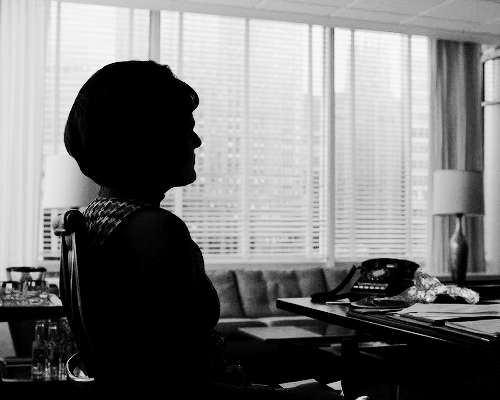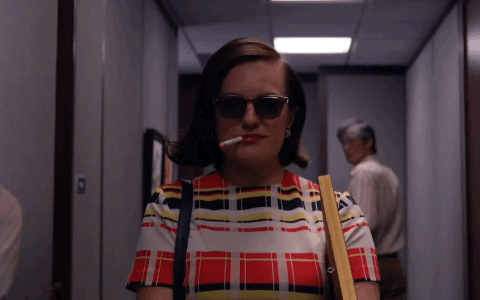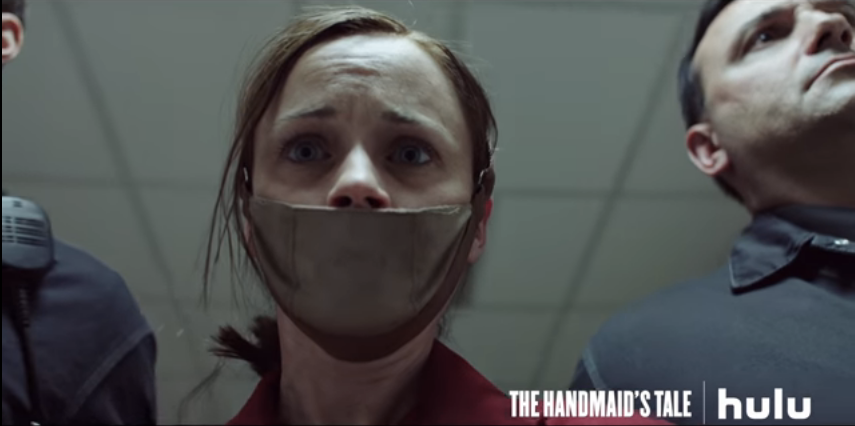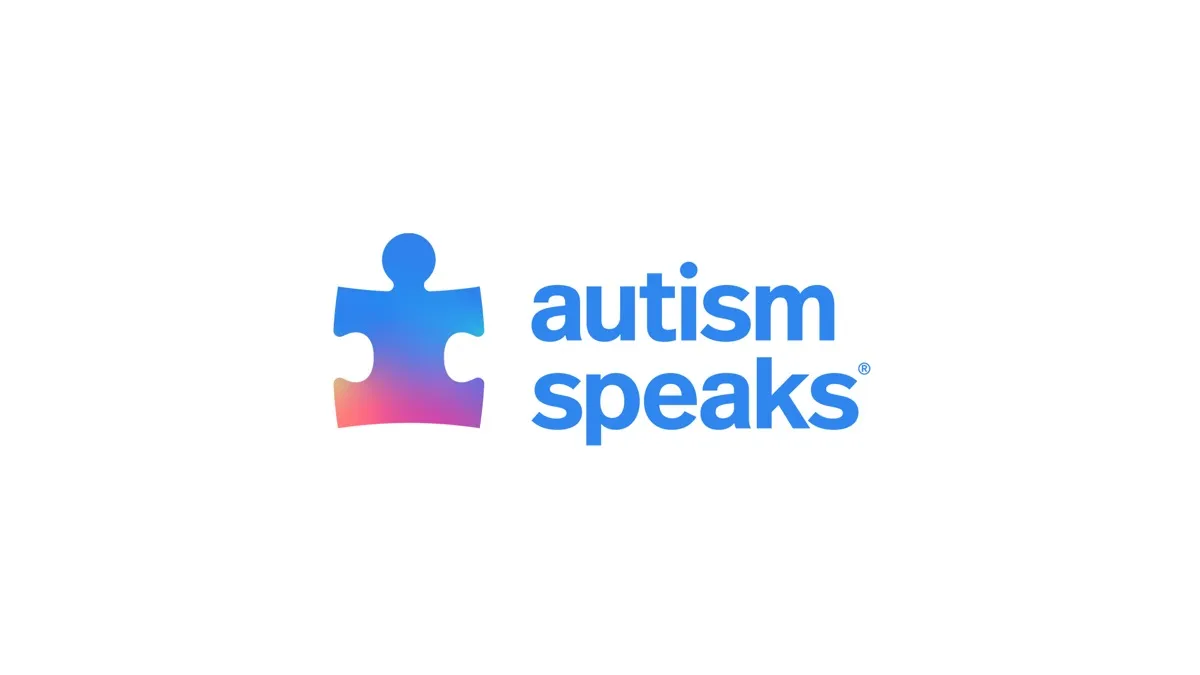You know what disappoints me? Artists who mistakenly believe that, in order to tell a “universal” story, you must remove uniqueness or a specific point of view.
Hulu’s upcoming adaptation of Margaret Atwood’s The Handmaid’s Tale premiered at the Tribeca Film Festival this weekend, and the cast and creative team did a panel in support of the show.
Actually, they didn’t seem to be there in support of the show they actually made—the one where there are protests, women having their children ripped from their arms, and the entire plot being set into motion because of the actions of an oppressive government. They were there in support of a show. One that isn’t in any way feminist or political, apparently.
Both the show’s writer, Bruce Miller, and star, Elizabeth Moss, seem to be doing a lot of hemming and hawing about the show’s (obvious, no really, obvious) political messages and feminism, saying, as reported by Reuters, that “they were initially drawn to the complex characters and script rather than the wider cultural issues.”
Says Moss, “For me, it’s not a feminist story. It is a human story because women’s rights are human rights. I never approach anything with any sort of political agenda. I approach it from a very human place.”
And to think, this gif used to be my everything:

And she isn’t the only one who’s deathly afraid of being thought to have a controversial opinion hesitant about politics. Co-star Joseph Fiennes, who plays Commander Waterford, said “For me, it was the writing, not politics.”
One can’t separate “the writing” from the politics in a piece like this, because the craft that Atwood used in the original novel, and the craft of Miller’s script is only as effective as it is because of the ideas with which the story is wrestling. The political, feminist ideas.
Fiennes’ comment is probably speaking to his own relationship to politics in that he’s saying that, while he’s not denying the story’s politics, that’s not specifically what drew him. That a political story, in and of itself, is not the thing that will make him choose a role. I can understand that. After all, there are plenty of horribly-written political stories out there. Something being political doesn’t guarantee that it’ll be good. Quality is important. I get it.
However, it’s the insistence that he wasn’t attracted to the politics of the piece, an insistence that seems to come from several members of the cast, that’s troubling. As if it couldn’t be both. As if it couldn’t have been the writing and the politics.
Let’s go back to what Moss said about The Handmaid’s Tale being a “human story.” Atwood responded brilliantly at the panel:
My favorite part of Elisabeth Moss’ bizarre “Handmaid’s Tale is humanist not feminist” take is that Margaret Atwood’s BEEN shutting it down pic.twitter.com/WOENuM1B0u
— A.B. (@AlannaBennett) April 23, 2017
And that’s it right there. The only reason why one would hesitate to say women’s rights instead of human rights is if they consider women to be other. I mean, we talk about “mankind” all the time. We don’t bat an eyelash when textbooks or museums talk about “Man” accomplishing something as a species, but there’s not an insignificant amount of eye-rolling whenever anyone tries to correct that by asking for “people” or “personhood.”
When someone is talking about women’s rights, they are talking about human rights. No correction needed.
It’s interesting then that, after Atwood’s comment, Moss says “Exactly,” as if she and Atwood were talking about the same thing. Moss seemed to be under the impression that Atwood was agreeing with her, but Atwood was saying that her novel was about human rights by being about women’s rights. That the “human rights” part should be understood without needing to be explicitly stated. Because women are human.
It’s exactly the reverse of Moss’ argument, which seems to be that you do need to explicitly state that a story is about human rights, because otherwise people will think it’s just about women. And who can relate to that? (I mean, besides half the population and anyone who’s ever had a mom.) The idea of women being human is so not-universal, that we need to clarify it. Or so she and Miller seem to think.
This hesitance to label the story political or feminist is exactly why we need those words (and the fights they represent) now more than ever. What we also need is braver artists; artists who aren’t afraid to acknowledge the politics of the stories they’re telling.

Thankfully, not everyone is as cowardly hesitant about speaking to the politics of The Handmaid’s Tale. Our very own Charline and Keisha attended an event in New York this weekend hosted by renowned women’s social club The Wing and Hulu in honor of the upcoming series premiere. Jenny Wall, Head of Marketing at Hulu, said:
“This story’s been around for 30 years and people say it’s timeless and timely, and we have to look back and realize it’s been timely many many times, whether that’s in the mid ’80s when it was actually written, in the late 90s, and even today. So I think they ring true of human rights. and I know we talk about that it’s a feminist book, a feminist story, and it is. But it’s also so much bigger in the sense in that the things that are ringing true about human rights–jumping right into it what’s happening in Chechnya with the gay men being rounded up and executed, it’s just another form that we need to look at. As Margaret says, We need to keep remembering that every time we get rights somebody wants to take them away.”
At least Hulu acknowledges the story’s feminism.
Series co-star Ann Dowd, who plays Aunt Lydia, hopes the show will inspire political action in people. She says, “I hope it has a massive effect on people. I hope they picket the White House … I think we should never underestimate the power of morons.”
Way to not pull any punches, Ms. Dowd!
There is no need to dilute and make bland a story speaking to the specific experience of women, or people of color, or the LGBTQIA community, or disabled people, because their experiences are human experiences, and we are all mentally and emotionally capable (I hope) of seeing ourselves in stories that might not, on the surface, have anything to do with us.
- Just because someone is male and doesn’t experience the specific injustices of sexism, doesn’t mean they’re incapable of understanding being dismissed or abused thanks to factors outside of their control.
- Just because someone isn’t black and doesn’t experience the specific injustices of racism doesn’t mean they’re incapable of understanding the pain of parents needing to bury their son way too early.
- Just because someone is straight or cis and doesn’t experience the specific injustices of homophobia and transphobia doesn’t mean they’re incapable of understanding being kept from expressing their love for someone, or what it’s like to fear violence or unemployment.
- Just because someone is able-bodied and neurotypical and doesn’t experience the specific injustices of ableism doesn’t mean they’re incapable of understanding what it feels like to be taunted, or bullied, or not taken seriously (when you’re taken into account at all).
Most people are capable of making those connections if they are given a story that doesn’t give them protagonists or a political message with which they can directly identify. Do you know how I know? Because people in marginalized groups are forced to make those connections every single day when experiencing most of the stories told in mainstream media. And if they can do it, I’m sure white, straight, cis, able-bodied men can do it, too.
Artists need to understand that telling a “universal” story doesn’t mean you can’t speak to a very specific experience. And if you’re worried that some people might get upset if you “lean too hard into” a specific cause (like gender equality, which is all feminism is), that’s all the more reason why you need to do it. We don’t need your milquetoast hedging. We need your bravery.
(via Hello Giggles, image: Hulu)
Want more stories like this? Become a subscriber and support the site!
—The Mary Sue has a strict comment policy that forbids, but is not limited to, personal insults toward anyone, hate speech, and trolling.—









Published: Apr 24, 2017 03:23 pm